
Spa: The Verdant Heart of Belgium's Wellness Retreats
Nestled in the lush Ardennes region, Spa is a charming town that lives up to its name as the birthplace of wellness tourism. The town is synonymous with healing waters, offering visitors a chance to unwind in natural thermal baths that have been celebrated for centuries. With a rich history dating back to Roman times, Spa is not only a place to rejuvenate but also to explore a cultural tapestry woven through its historic architecture and museums. Nature enthusiasts will relish the scenic beauty surrounding Spa. The town is enveloped by verdant forests and rolling hills, making it ideal for hiking, cycling, and even horseback riding. The nearby High Fens Nature Reserve offers a unique landscape of moors and wetlands, perfect for more adventurous visitors. Spa is also famous for hosting the Spa-Francorchamps racetrack, a mecca for motorsport fans. Every year, it draws crowds for the Belgian Grand Prix, one of the most thrilling events in the Formula 1 calendar. Additionally, the town boasts a variety of cultural festivals and events, including the renowned Francofolies music festival, which adds a vibrant touch to its serene ambiance.
Local tips in Spa
- Visit the Thermes de Spa early in the morning to avoid crowds and enjoy a more peaceful experience.
- Explore the High Fens Nature Reserve with a local guide for the best scenic routes and wildlife spotting.
- If you're a motorsport fan, plan your visit around the Belgian Grand Prix to experience the thrill of Spa-Francorchamps.
- Try local specialties like 'Boulet Liégeois' at a traditional Belgian restaurant to get a taste of regional cuisine.
Spa: The Verdant Heart of Belgium's Wellness Retreats
Nestled in the lush Ardennes region, Spa is a charming town that lives up to its name as the birthplace of wellness tourism. The town is synonymous with healing waters, offering visitors a chance to unwind in natural thermal baths that have been celebrated for centuries. With a rich history dating back to Roman times, Spa is not only a place to rejuvenate but also to explore a cultural tapestry woven through its historic architecture and museums. Nature enthusiasts will relish the scenic beauty surrounding Spa. The town is enveloped by verdant forests and rolling hills, making it ideal for hiking, cycling, and even horseback riding. The nearby High Fens Nature Reserve offers a unique landscape of moors and wetlands, perfect for more adventurous visitors. Spa is also famous for hosting the Spa-Francorchamps racetrack, a mecca for motorsport fans. Every year, it draws crowds for the Belgian Grand Prix, one of the most thrilling events in the Formula 1 calendar. Additionally, the town boasts a variety of cultural festivals and events, including the renowned Francofolies music festival, which adds a vibrant touch to its serene ambiance.
When is the best time to go to Spa?
Iconic landmarks you can’t miss
Thermes de Spa
Experience ultimate relaxation at Thermes de Spa, a premier health spa in the heart of Belgium, offering thermal baths and luxury wellness treatments.
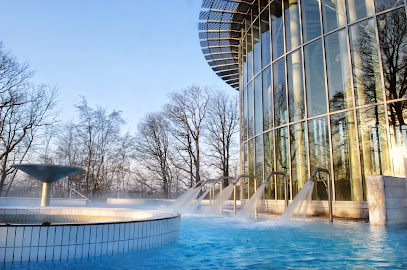
Parc de 7 Heures
Discover the tranquility of Parc de 7 Heures, a stunning state park in Spa, Belgium, perfect for nature lovers and outdoor enthusiasts seeking relaxation.
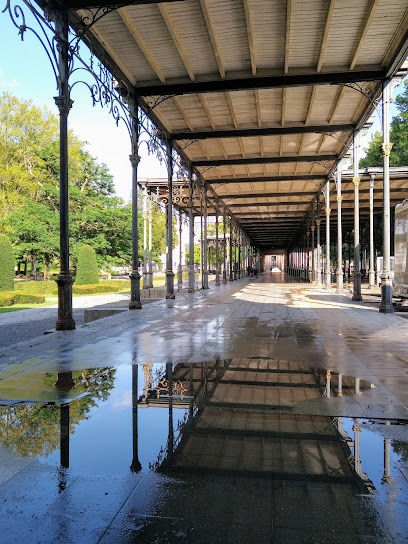
Spa-Francorchamps Racetrack Museum
Explore the exhilarating world of motorsport at the Spa-Francorchamps Racetrack Museum, where history and speed collide in the heart of Belgium.
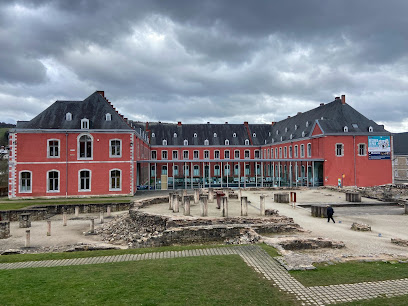
Domain of Bérinzenne
Explore the stunning landscapes and diverse hiking trails of the Domain of Bérenzenne, a serene state park in the heart of Belgium.
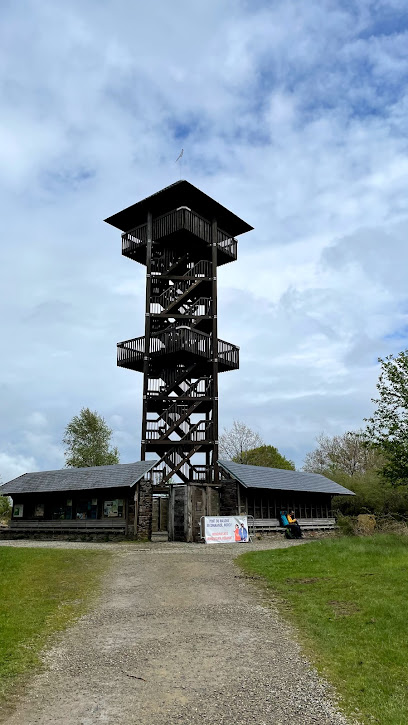
Maison Du Tourisme De Spa - Hautes Fagnes
Explore the natural beauty and rich history of Spa, Belgium, at the Maison Du Tourisme De Spa - Hautes Fagnes tourist information center.
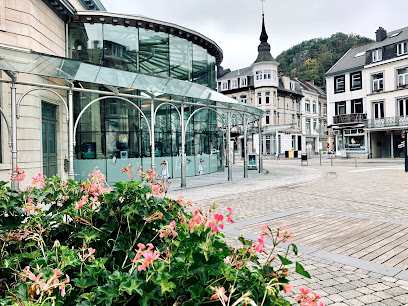
Spa-Monopole
Experience the healing waters and rich history of Spa-Monopole, a must-visit destination for wellness enthusiasts in Belgium.
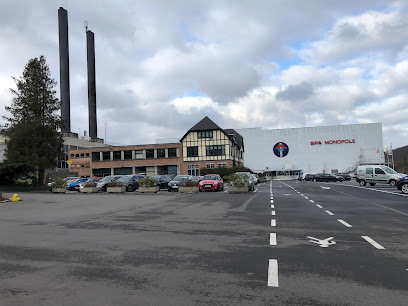
Pouhon Pierre-le-Grand
Explore the historic charm of Pouhon Pierre-le-Grand in Spa, Belgium, where scenic beauty and rich heritage come together.
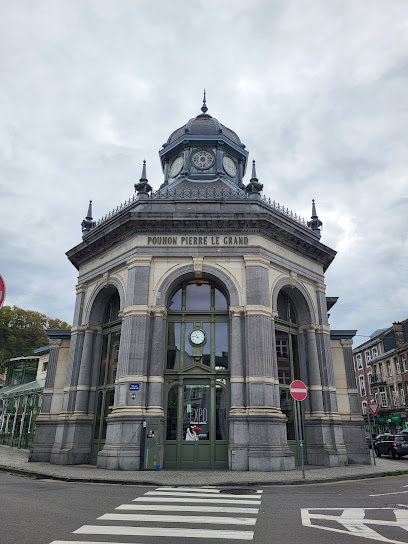
Museum of the City of Water
Explore the Museum of the City of Water in Spa, where history meets wellness in a captivating journey through time.
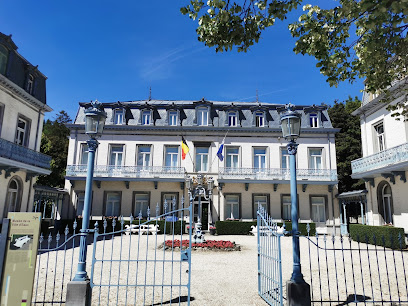
Cascade Monumentale
Experience the serene beauty of Cascade Monumentale, a tranquil waterfall in Spa surrounded by stunning statues and vibrant flowers, perfect for relaxation.
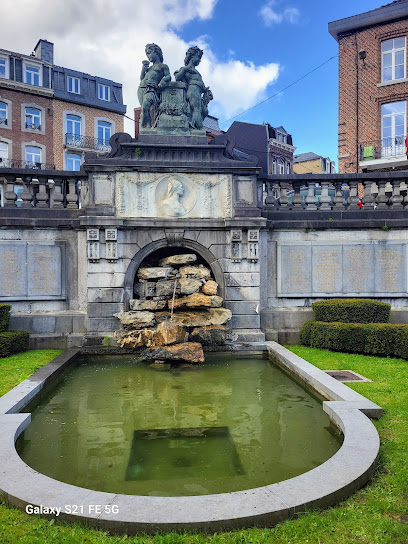
Monument aux Morts
Explore the Monument aux Morts in Spa, a touching tribute to soldiers' sacrifices amidst Belgium's stunning landscapes, perfect for history enthusiasts.
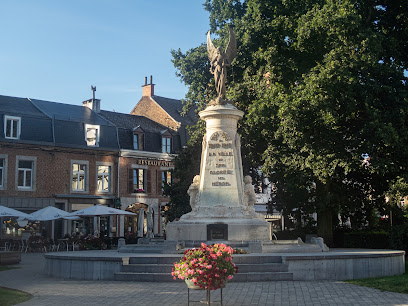
Cemetery of Spa
Discover the serene beauty of the Cemetery of Spa, a peaceful resting place surrounded by nature's elegance, reflecting the rich history of this charming town.
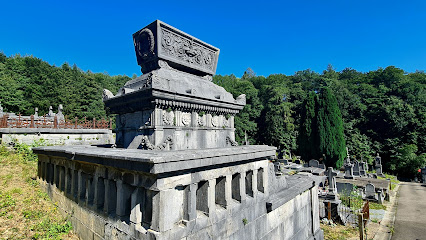
Promenade spa
Experience ultimate relaxation at Promenade Spa, a premier wellness destination in the historic town of Spa, Belgium, known for its rejuvenating mineral springs.
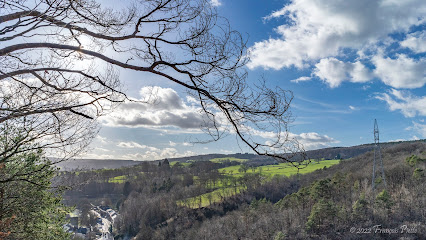
Monument pour l'équipage du Lancaster ME 581-BQ-D
Explore the Lancaster ME 581-BQ-D Memorial in Spa, Belgium – a poignant tribute to the valor and sacrifice of World War II airmen amidst serene natural beauty.
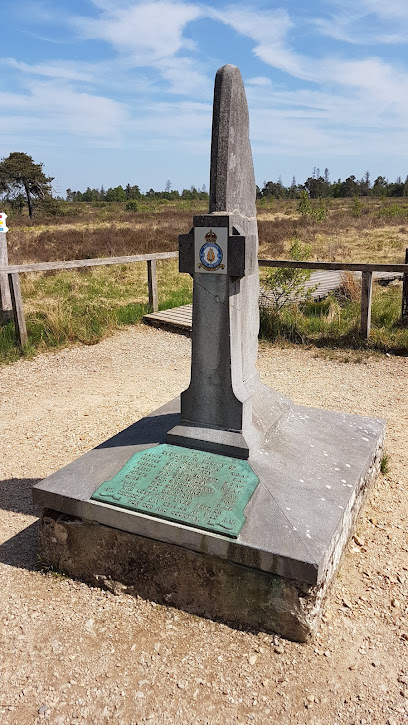
Source de la Sauvenière
Experience the natural tranquility of Source de la Sauveniére, a serene oasis in Spa, Belgium, renowned for its rejuvenating mineral springs.
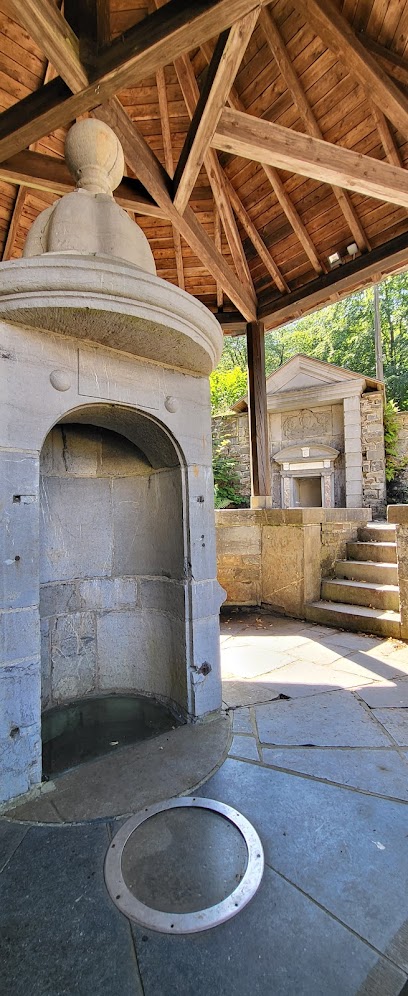
Monument Eugène Gridelet Spa
Experience the rich history and serene beauty of the Monument Eugène Gridelet in Spa, Belgium, a perfect blend of culture and tranquility.
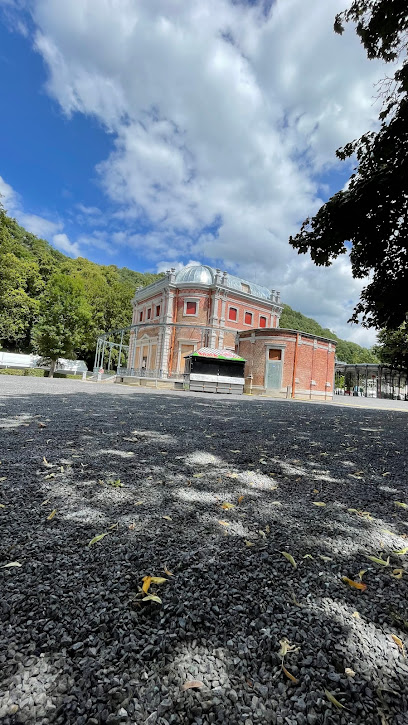
Unmissable attractions to see
Aachen Cathedral
Discover the architectural wonder of Aachen Cathedral, a UNESCO World Heritage Site, steeped in history and artistry in Germany.
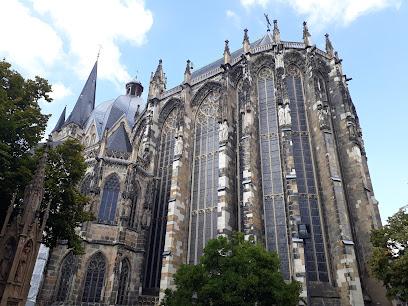
Book Store Dominicanen
Discover the enchanting Book Store Dominicanen in Maastricht, a unique bookstore set in a historic Dominican church, perfect for literary enthusiasts.

Labyrinth Three Countries Point
Discover adventure and fun at the Labyrinth Three Countries Point, a unique attraction bridging the Netherlands, Germany, and Belgium.
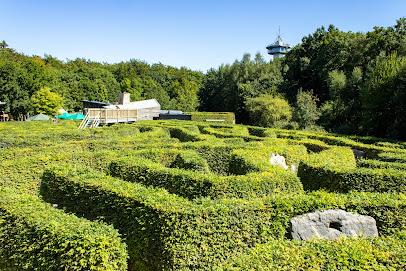
Parc Boverie
Experience the perfect blend of nature and culture at Parc Boverie in Liège, Belgium - a tranquil escape for every traveler.
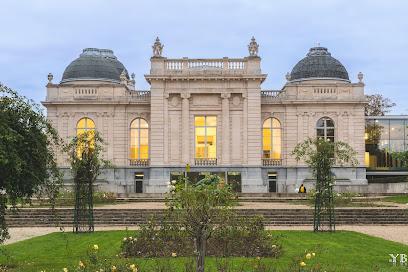
Carolus Thermen
Discover ultimate relaxation at Carolus Thermen, Aachen's premier thermal spa with healing waters and luxurious wellness treatments.
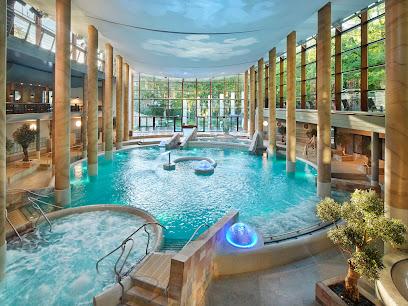
Elisenbrunnen
Discover the beauty of Elisenbrunnen, a historic fountain in Aachen with soothing thermal springs and stunning architecture, perfect for tourists seeking history and relaxation.
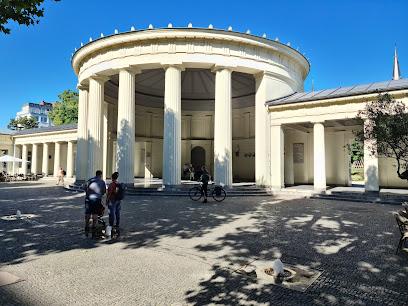
Nationalpark Eifel
Discover the breathtaking landscapes and rich biodiversity of Nationalpark Eifel, Germany's premier destination for nature lovers and outdoor enthusiasts.
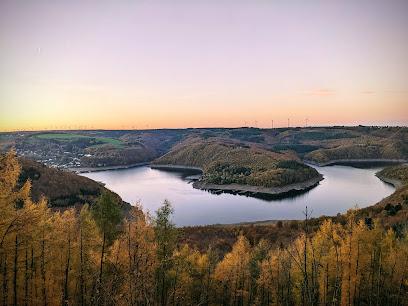
Gemeentegrot
Discover the Gemeentegrot in Valkenburg, a stunning underground cave filled with history, art, and breathtaking limestone formations.
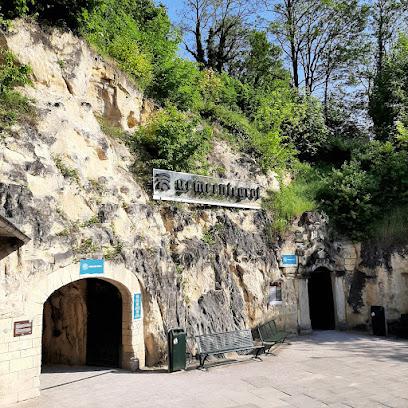
Thermae 2000
Discover ultimate relaxation at Thermae 2000 in Valkenburg, featuring thermal baths, spa treatments, and a serene hotel experience.
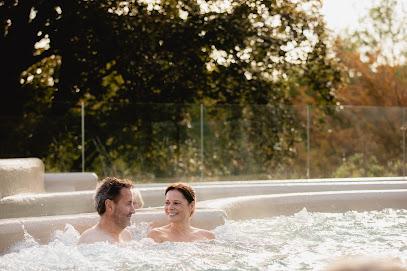
Fort Eben-Emael
Explore the fascinating history and stunning architecture of Fort Eben-Emael, a must-visit military fortress in Liège, Belgium.
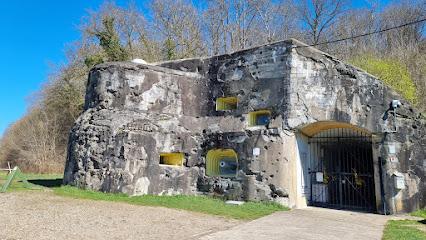
Aquarium-Museum of Liège
Explore the Aquarium-Museum of Liège: A captivating blend of aquatic wonders and zoological exhibits along the Meuse River.
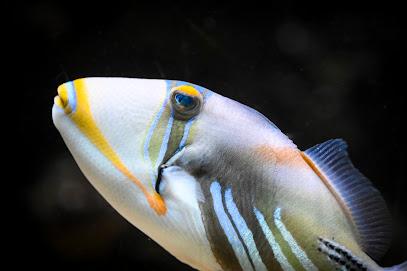
Basilica of Our Lady
Explore the stunning Basilica of Our Lady in Maastricht, a historic church with breathtaking architecture and a serene atmosphere in the heart of the city.
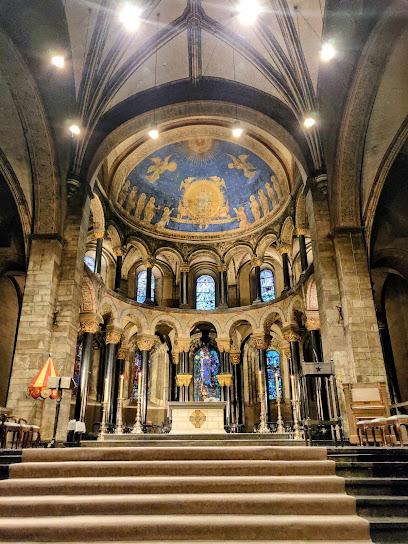
New Tivoli
Experience the thrill of sports and entertainment at New Tivoli, Aachen's premier stadium, where every event promises excitement and camaraderie.
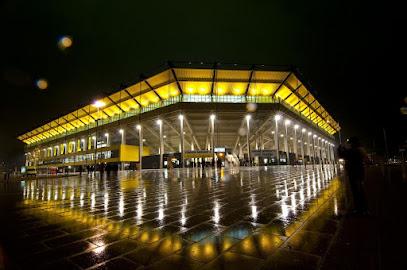
Bonnefanten museum
Explore the Bonnefanten Museum in Maastricht, a treasure trove of art that bridges history and contemporary creativity amidst stunning architecture.
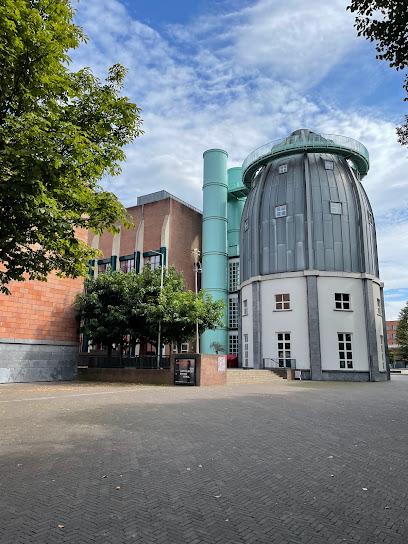
Radhadesh domain
Explore the enchanting Radhadesh in Durbuy, Belgium, where spirituality meets culture with a stunning Hindu temple, delightful bakery, and engaging museum.
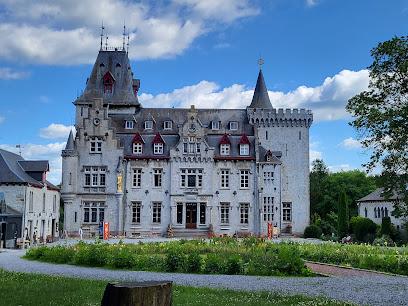
Essential places to dine
Le Jardin des Elfes
Discover authentic Belgian cuisine amidst nature's beauty at Le Jardin des Elfes in Jalhay.
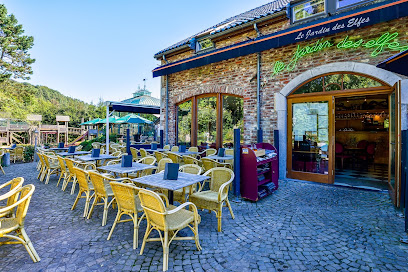
Franc'Off des Artistes
Discover authentic Belgian cuisine at Franc'Off des Artistes in Spa - where local flavors meet artistic flair in a cozy brasserie setting.
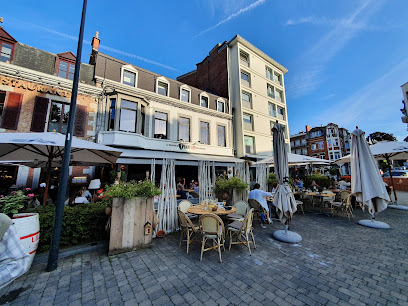
La Source de la Géronstère
Discover La Source de la Géronstère: A delightful blend of exquisite cuisine and warm hospitality in the heart of Spa, Belgium.
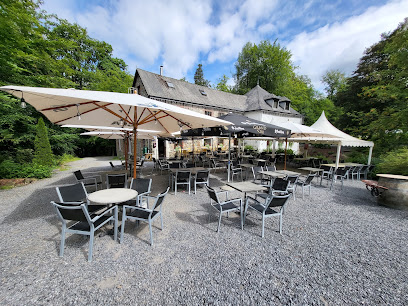
Sole Di Capri
Experience exquisite Italian dining at Sole Di Capri in Spa, Belgium – where tradition meets taste in every dish.
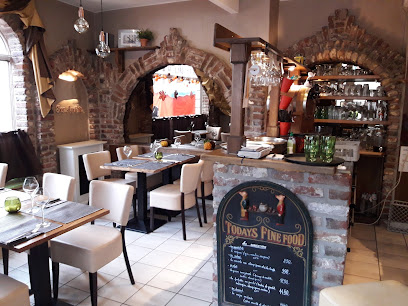
La Brasserie des Thermes
Experience exquisite European cuisine at La Brasserie des Thermes in Spa - where tradition meets modern dining excellence.
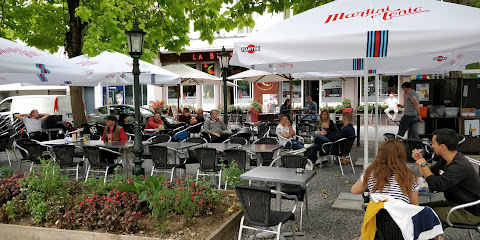
The Swiss Chalet
Savor exquisite Swiss delicacies in a cozy alpine-inspired setting at The Swiss Chalet in Jalhay.
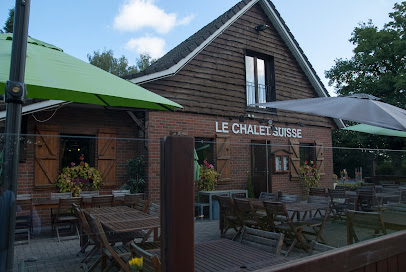
Hestia
Discover Hestia: Your gateway to authentic Greek cuisine amidst the serene beauty of Spa, Belgium.
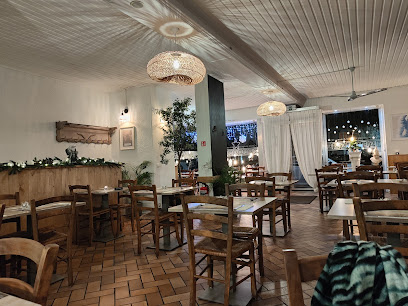
Logis Hôtel Restaurant l'Auberge Spa
Experience exquisite dining at Logis Hôtel Restaurant l'Auberge Spa in Belgium's enchanting town of Spa—where culinary art meets comfort.
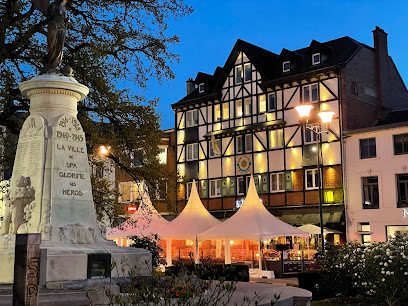
L'Olivier
Discover authentic Italian flavors at L'Olivier in Spa – your go-to destination for delicious pizza and welcoming ambiance.
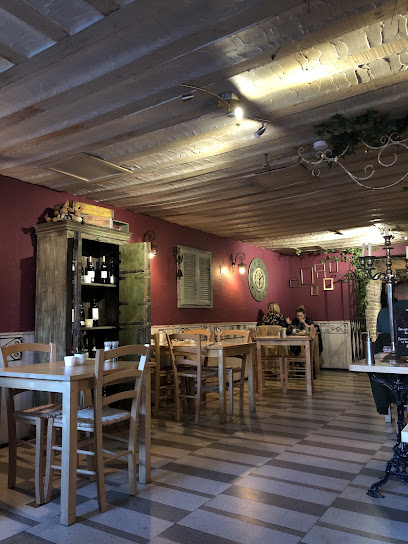
Domino Steak House Spa
Discover exquisite Belgian meats at Domino Steak House Spa – where culinary excellence meets cozy ambiance.
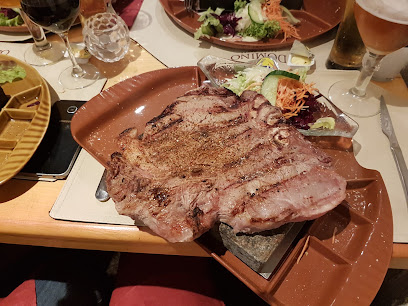
La Brasserie des Bobelines
Experience modern European cuisine and craft brews at La Brasserie des Bobelines in Spa, Belgium - where flavor meets tradition.
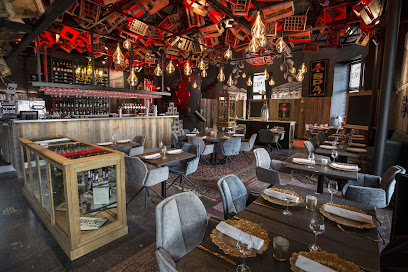
Restaurant la Belle Epoque
Experience modern European cuisine at its finest in Spa, Belgium's Restaurant la Belle Epoque – where every meal is a celebration of flavor.
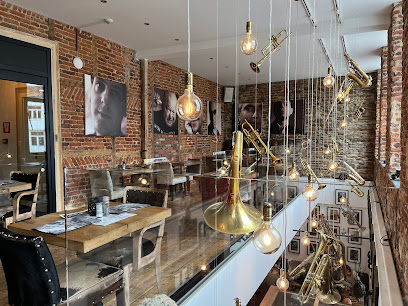
Le Palmarès
Experience the best of Belgian cuisine at Le Palmarès - where culinary artistry meets inviting ambiance in Spa.
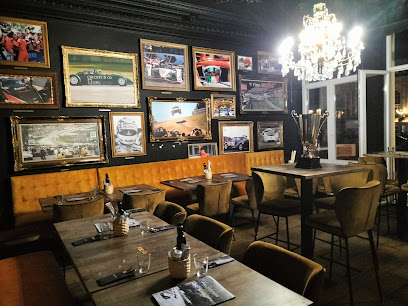
La grande muraille de Chine
Discover the essence of Chinese gastronomy at La Grande Muraille de Chine in Spa - where every dish tells a story.
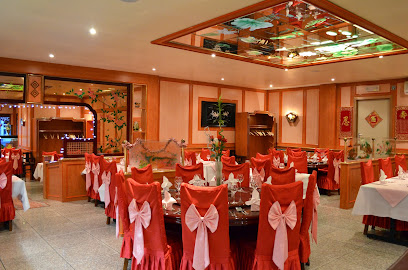
The Barisart
Experience authentic Belgian cuisine at The Barisart - where delightful flavors meet warm hospitality in the heart of Spa.
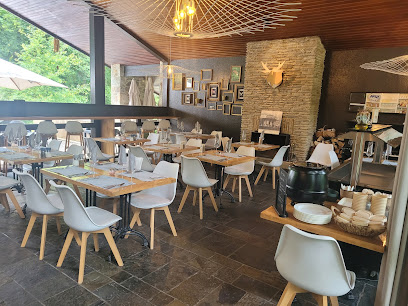
Markets, malls and hidden boutiques
ACTION
Explore ACTION in Spa for a delightful shopping experience featuring unique gifts, DIY supplies, and local treasures in a charming atmosphere.
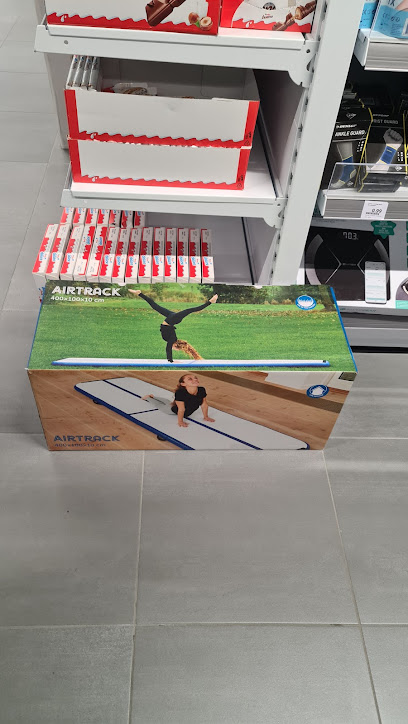
Shop & Go
Explore the charm of Spa with Shop & Go, your one-stop supermarket for local delights and essential travel supplies.
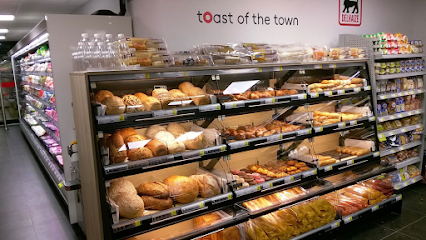
Au Fuseau
Discover stylish clothing and contemporary fashion at Au Fuseau, a premier clothing store in the heart of Spa, Belgium, perfect for all fashion enthusiasts.
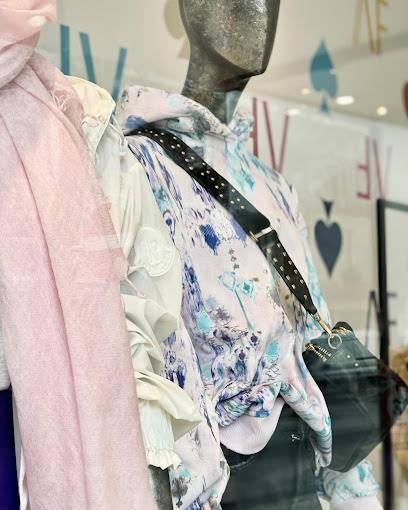
Demain - L'épicerie
Discover the essence of Belgian cuisine at Demain - L'épicerie in Spa, where local flavors and gourmet products come together.
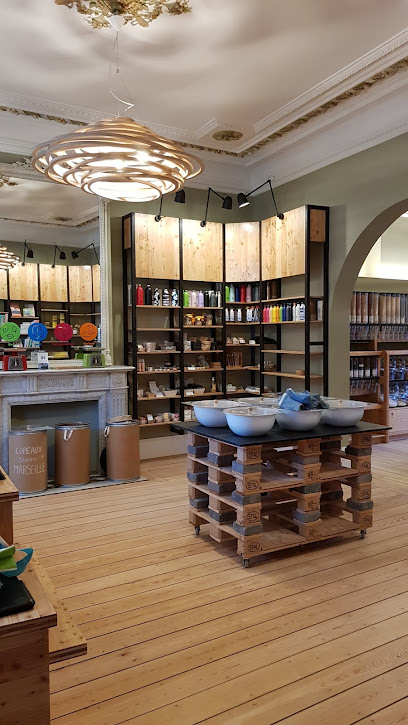
Espace du Bien-Etre
Discover the essence of wellness at Espace du Bien-Etre, a serene herb shop and organic food store in Spa, Belgium, promoting natural health.
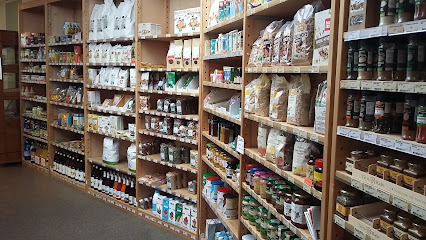
Le Coin du Bois
Discover unique home goods and local craftsmanship at Le Coin du Bois in Spa, Belgium, where every item tells a story.
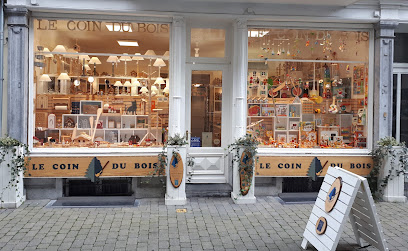
Di Spa
Discover beauty and wellness at Di Spa, the ultimate beauty supply stop in the historic town of Spa, Belgium.
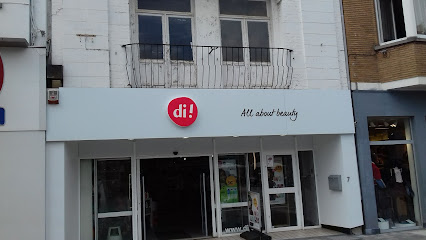
Pomme Cannelle
Explore Pomme Cannelle, Spa's enchanting gift shop, where unique souvenirs and local treasures await your discovery.
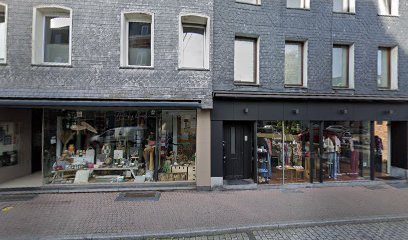
Lily Rose Spa
Explore chic fashion and unique accessories at Lily Rose Spa, a boutique paradise in the heart of Belgium's Spa town.
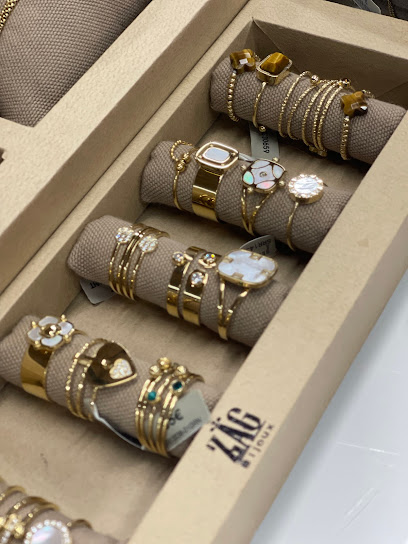
Lola Coquelicot Royale
Explore Lola Coquelicot Royale in Spa, Belgium, for unique women's fashion that embodies style, elegance, and local charm.
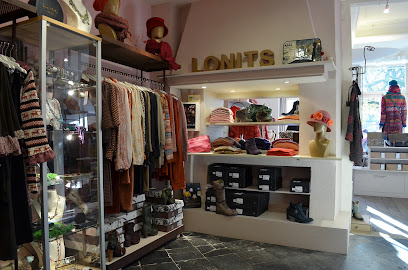
A la Boutique O’Crocholat
Experience the sweet bliss of handcrafted chocolates at A la Boutique O’Crocholat in Spa, Belgium, where every bite is a taste of luxury.
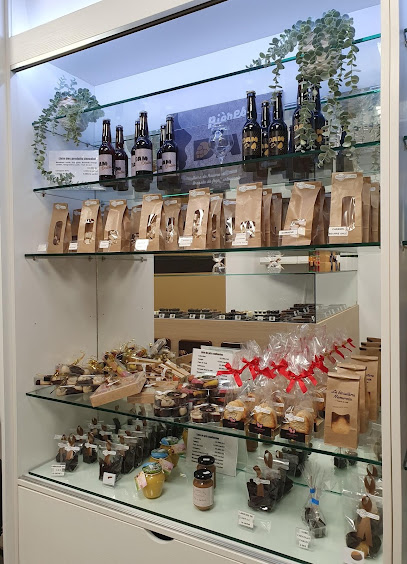
Peau d'Ane Maroquinerie
Explore Peau d'Ane Maroquinerie in Spa, Belgium for exquisite leather luggage and accessories, blending style and functionality for every traveler.
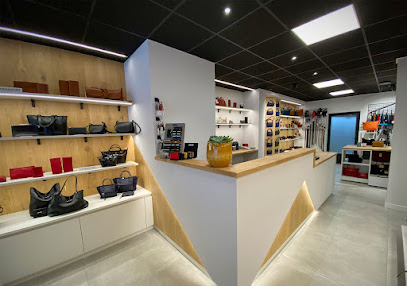
Glenwood Menswear Spa
Explore Glenwood Menswear Spa for high-quality men's fashion in the heart of Belgium's charming spa town.
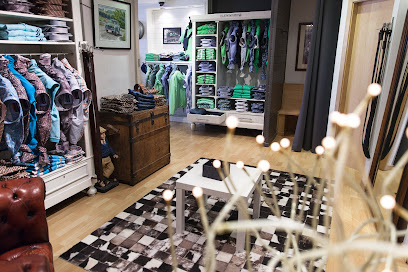
Galerie AZUR - Galerie d'Art et Objets Cadeaux
Explore Galerie AZUR in Spa, Belgium – a charming gift shop and art gallery celebrating local artistry and unique gifts.
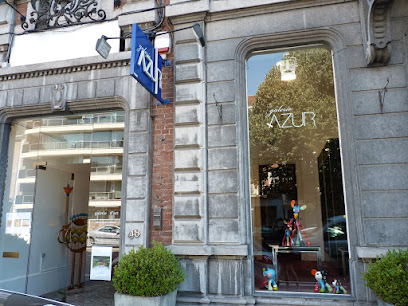
Nelson Concept Store
Explore the Nelson Concept Store in Spa for a unique blend of fashion and beauty, offering stylish clothing and quality cosmetics in a charming setting.
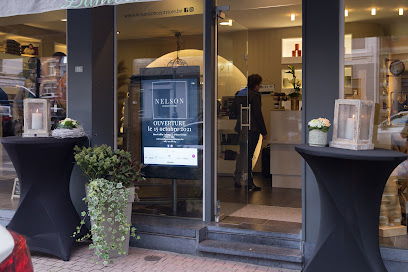
Essential bars & hidden hideouts
Franc'Off des Artistes
Discover the flavors of Belgium at Franc'Off des Artistes, a charming brasserie in Spa offering a delightful culinary experience.
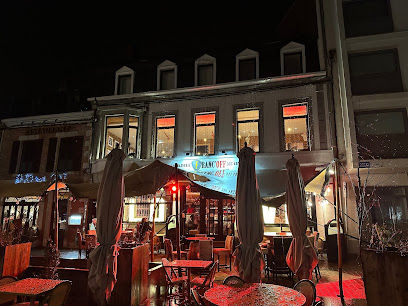
La Brasserie des Thermes
Experience the flavors of Europe at La Brasserie des Thermes, a charming restaurant in the heart of Spa, Belgium.
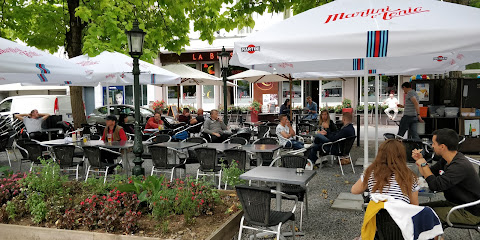
La Brasserie des Bobelines
Explore the delicious modern European cuisine and unique craft beers at La Brasserie des Bobelines in the heart of Spa, Belgium.
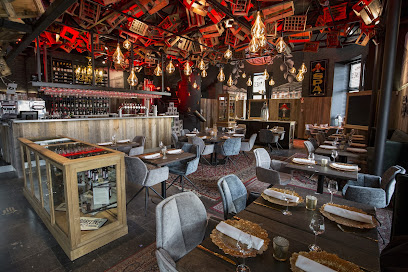
Restaurant la Belle Epoque
Experience the essence of Modern European cuisine at Restaurant la Belle Epoque in Spa, Belgium, where every dish tells a story of flavor and tradition.
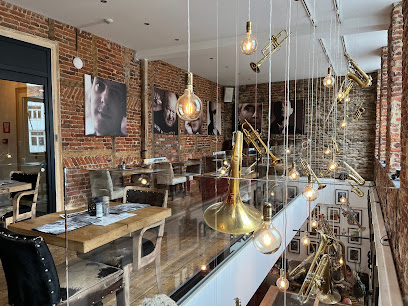
Le Bacchus
Discover the heart of Italian cuisine at Le Bacchus in Spa, where every dish is a masterpiece crafted with passion and tradition.
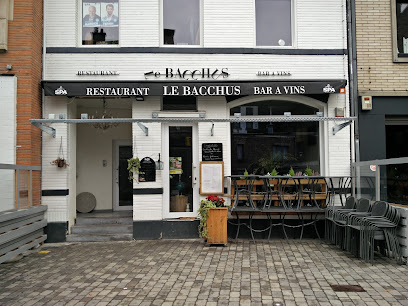
Havana Café
Discover Havana Café, a lively bar in Spa, Belgium, offering cocktails, craft beers, and a vibrant nightlife experience perfect for tourists.
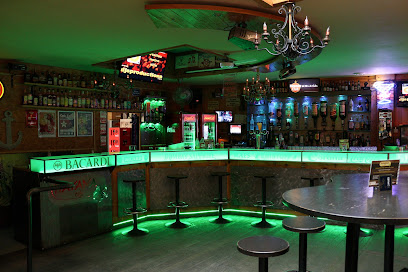
Le Bar Fly
Discover the culinary charm of Le Bar Fly in Spa, Belgium – a restaurant offering exquisite local flavors and a delightful dining atmosphere.
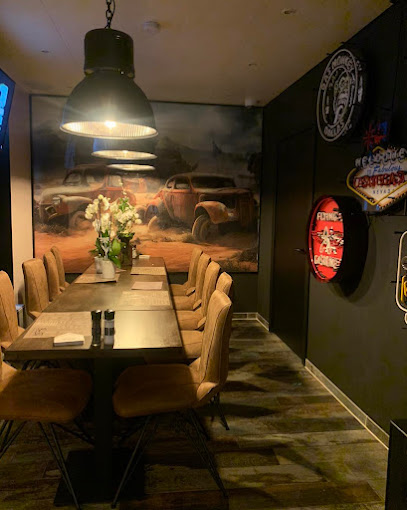
Le Grill du Casino
Discover the culinary delights of Le Grill du Casino in Spa, Belgium, where exceptional grilled cuisine meets a charming ambiance.
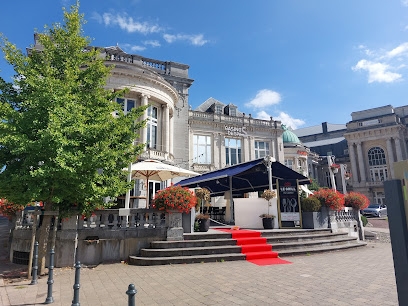
La Taverne
Discover the flavors of Belgium at La Taverne, a cozy gastropub in Spa serving exquisite local and international dishes.
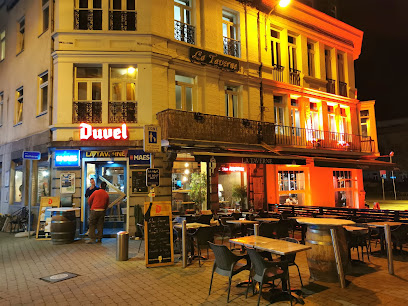
Le Cellier
Experience the heart of Belgian hospitality at Le Cellier, a cozy pub in Spa offering local beers and delightful cuisine.
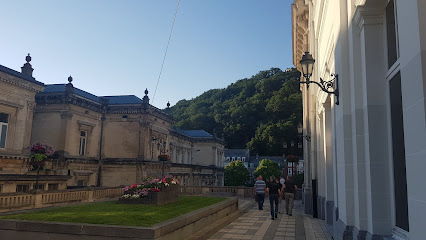
BOTEYE cocktails et spiritueux
Experience the art of cocktail making at BOTEYE in Spa, Belgium, where innovative drinks and a vibrant atmosphere await.
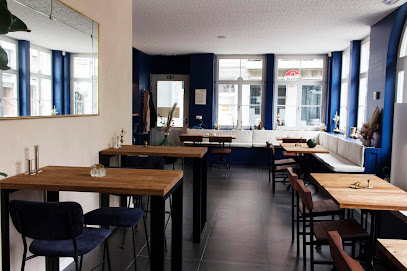
Au Milieu
Experience the vibrant nightlife of Spa at Au Milieu, where exquisite cocktails and a warm atmosphere await you.
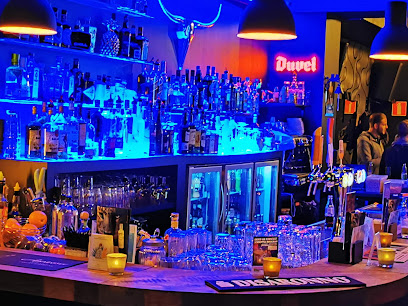
L'Alchimie
Experience the exquisite fusion of modern European and haute French cuisine at L'Alchimie in Spa, Belgium, where every meal is a celebration of taste.
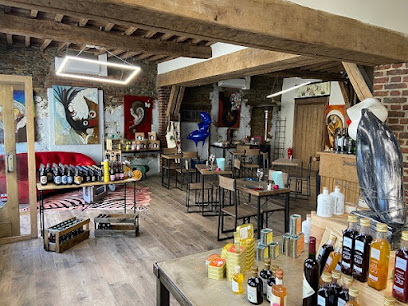
Titi Twister
Experience the vibrant nightlife of Spa at Titi Twister, where creative cocktails and a warm atmosphere await.
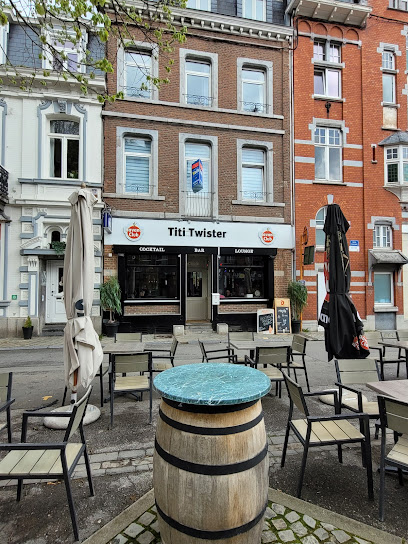
Le Bistro de Spa
Discover a vibrant dining experience at Le Bistro de Spa, where modern European cuisine meets lively entertainment in a charming setting.
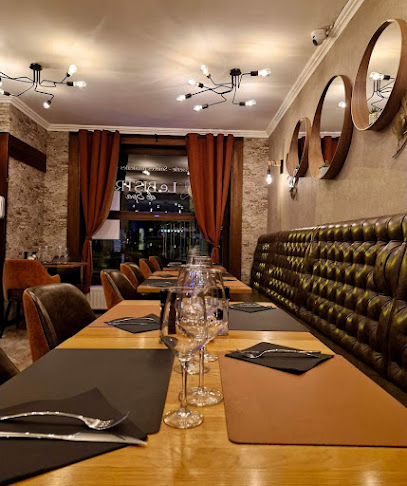
Local Phrases
-
- HelloHallo
[HAH-loh] - GoodbyeTot ziens
[tot zeens] - YesJa
[yah] - NoNee
[nay] - Please/You're welcomeAlstublieft
[ahl-stu-BLEEFT] - Thank youDank u
[dank oo] - Excuse me/SorrySorry
[SOR-ee] - How are you?Hoe gaat het?
[hoo gat het] - Fine. And you?Goed. En met jou?
[khoot. en met yow] - Do you speak English?Spreekt u Engels?
[sprekt oo ENG-els] - I don't understandIk begrijp het niet
[ik buh-GRAIP het neet]
- HelloHallo
-
- I'd like to see the menu, pleaseIk zou graag de menukaart willen zien, alstublieft
[ik zou khraag duh meh-noo-kart VIL-len zeen, ahl-stu-BLEEFT] - I don't eat meatIk eet geen vlees
[ik eet khayn vlays] - Cheers!Proost!
[prohst] - I would like to pay, pleaseIk zou graag willen betalen, alstublieft
[ik zou khraag VIL-len buh-TAH-len, ahl-stu-BLEEFT]
- I'd like to see the menu, pleaseIk zou graag de menukaart willen zien, alstublieft
-
- Help!Help!
[help] - Go away!Ga weg!
[ga vekh] - Call the Police!Bel de politie!
[bel duh poh-lee-see] - Call a doctor!Bel een dokter!
[bel ayn dok-ter] - I'm lostIk ben verdwaald
[ik ben ferh-DWAHLD] - I'm illIk ben ziek
[ik ben zik]
- Help!Help!
-
- I'd like to buy...Ik zou graag ... kopen
[ik zou khraag ... KOH-pen] - I'm just lookingIk kijk alleen maar
[ik kayk al-LEEN mar] - How much is it?Hoeveel kost het?
[HOO-vel kost het] - That's too expensiveDat is te duur
[dat is tuh dur] - Can you lower the price?Kunt u de prijs verlagen?
[kunt oo duh prays vur-LAH-hen]
- I'd like to buy...Ik zou graag ... kopen
-
- What time is it?Hoe laat is het?
[hoo laht is het] - It's one o'clockHet is een uur
[het is ayn oor] - Half past (10)Half tien
[hahlf teen] - MorningOchtend
[OHK-tent] - AfternoonNamiddag
[nah-MI-dahkh] - EveningAvond
[AH-vont] - YesterdayGisteren
[KHIS-tuh-run] - TodayVandaag
[vahn-DAKH] - TomorrowMorgen
[MOR-khun] - 1Eén
[ayn] - 2Twee
[tway] - 3Drie
[dree] - 4Vier
[veer] - 5Vijf
[vayf] - 6Zes
[zess] - 7Zeven
[zay-ven] - 8Acht
[akht] - 9Negen
[nay-khen] - 10Tien
[teen]
- What time is it?Hoe laat is het?
-
- Where's a/the...?Waar is een/de...?
[vahr is ayn/de...] - What's the address?Wat is het adres?
[vaht is het ah-DRES] - Can you show me (on the map)?Kunt u mij tonen (op de kaart)?
[kunt oo may TOH-nen (op duh kahrt)] - When's the next (bus)?Wanneer is de volgende (bus)?
[vahn-EHR is duh vol-HEN-duh (bus)] - A ticket (to ....)Een ticket (naar ....)
[ayn ticket (nar ....)]
- Where's a/the...?Waar is een/de...?
History of Spa
-
The history of Spa dates back to Roman times when the natural springs were discovered and utilized for their reputed healing properties. The very name 'Spa' is derived from the Walloon word 'espa,' meaning 'fountain.' The Romans built baths around these springs, establishing Spa as a center for wellness and relaxation.
-
During the Middle Ages, Spa began to gain prominence as a health resort, attracting visitors from across Europe. The town's reputation as a place of healing was solidified by the 14th century, thanks to the mineral-rich waters that were believed to cure various ailments.
-
The 16th and 17th centuries marked a period of significant development for Spa. The town attracted aristocrats, royalty, and notable figures such as Peter the Great and Charles II of England. This era, often referred to as Spa's 'Golden Age,' saw the construction of luxurious bathhouses, hotels, and other facilities designed to accommodate the influx of affluent visitors.
-
In the 18th century, Spa was dubbed 'The Café of Europe' because of its popularity among the European elite. The construction of the Waux-Hall, a large entertainment complex featuring a theater, ballroom, and gambling rooms, symbolized Spa's status as a premier destination for leisure and socializing. The town continued to thrive as a haven for the wealthy seeking relaxation and entertainment.
-
The 19th century brought about significant changes as Spa adapted to the Industrial Revolution. Infrastructure improvements, such as the introduction of the railroad, made the town more accessible to a broader range of visitors. The modernization of facilities and the construction of new hotels, like the Radisson Blu Palace Hotel, ensured Spa remained a leading health resort well into the 20th century.
-
Both World Wars had a profound impact on Spa. During World War I, the town was occupied by German forces and used as headquarters for the German High Command. In World War II, Spa again found itself under German occupation, and many of its historic buildings suffered damage. Despite these challenges, Spa's resilience ensured its recovery and continued relevance as a spa town.
-
After World War II, Spa underwent a period of revival, with significant efforts made to restore its historic buildings and modernize its spa facilities. The town embraced its rich history while also catering to contemporary wellness trends. Today, Spa remains a renowned destination for health and relaxation, attracting visitors from around the world to its thermal baths, luxurious hotels, and vibrant cultural scene.
Spa Essentials
-
Spa is located in the province of Liège, Belgium. The nearest international airport is Brussels Airport, approximately 135 kilometers away. From Brussels, you can take a train to Verviers Central and then transfer to a local train to Spa-Géronstère station. The journey typically takes around 2 to 2.5 hours by train. Alternatively, you can rent a car and drive to Spa, which takes about 1.5 hours from Brussels.
-
Spa is a relatively small town, and many attractions are within walking distance. For longer trips, local taxis are available but can be expensive. The town is also served by buses which connect to nearby towns and villages. Renting a bike is a popular way to explore Spa and its surroundings. Car rentals are available for those who prefer to drive.
-
The official currency in Belgium is the Euro (EUR). Credit and debit cards are widely accepted in hotels, restaurants, and shops. However, it is advisable to carry some cash for smaller establishments and local markets. ATMs are readily available throughout Spa.
-
Spa is generally a safe destination for tourists. Standard precautions should be taken, such as not leaving belongings unattended and being cautious in crowded places. There are no specific high-crime areas targeting tourists, but it is always best to stay vigilant, especially at night.
-
In case of emergency, dial 112 for immediate assistance. This number connects you to emergency services including the police, fire department, and medical services. The local police station and medical facilities are available in Spa. It is recommended to have travel insurance that covers medical emergencies. Pharmacies are available for minor health issues.
-
Fashion: Do dress comfortably and appropriately for the weather. Smart-casual attire is generally acceptable. Avoid overly casual clothing in fine dining restaurants. Religion: Do respect local religious customs, especially when visiting churches. Public Transport: Do validate your ticket before boarding trains and buses. Don't eat or drink on public transport. Greetings: Do greet people with a handshake. A simple 'Bonjour' (Good day) is appreciated. Eating & Drinking: Do try local specialties like 'Boulet à la Liégeoise' and the famous Spa water. Don't be loud or disruptive in restaurants.
-
To experience Spa like a local, visit the town's weekly market where you can buy fresh produce and local goods. Engage with locals; they are friendly and often happy to share recommendations. Don't miss the thermal baths, which are a quintessential part of Spa's history and culture. Additionally, exploring the Ardennes forest offers a glimpse into the natural beauty surrounding Spa.
Trending Landmark in Spa
-
Thermes de Spa
-
Parc de 7 Heures
-
Spa-Francorchamps Racetrack Museum
-
Domain of Bérinzenne
-
Maison Du Tourisme De Spa - Hautes Fagnes
-
Spa-Monopole
-
Pouhon Pierre-le-Grand
-
Museum of the City of Water
-
Cascade Monumentale
-
Monument aux Morts
-
Cemetery of Spa
-
Promenade spa
-
Monument pour l'équipage du Lancaster ME 581-BQ-D
-
Source de la Sauvenière
-
Monument Eugène Gridelet Spa
Nearby Cities to Spa
-
Things To Do in Liege
-
Things To Do in Durbuy
-
Things To Do in Aachen
-
Things To Do in La Roche-en-Ardenne
-
Things To Do in Maastricht
-
Things To Do in Clervaux
-
Things To Do in Genk
-
Things To Do in Wiltz
-
Things To Do in Hasselt
-
Things To Do in Vianden
-
Things To Do in Namur
-
Things To Do in Dinant
-
Things To Do in Diekirch
-
Things To Do in Echternach
-
Things To Do in Arlon










